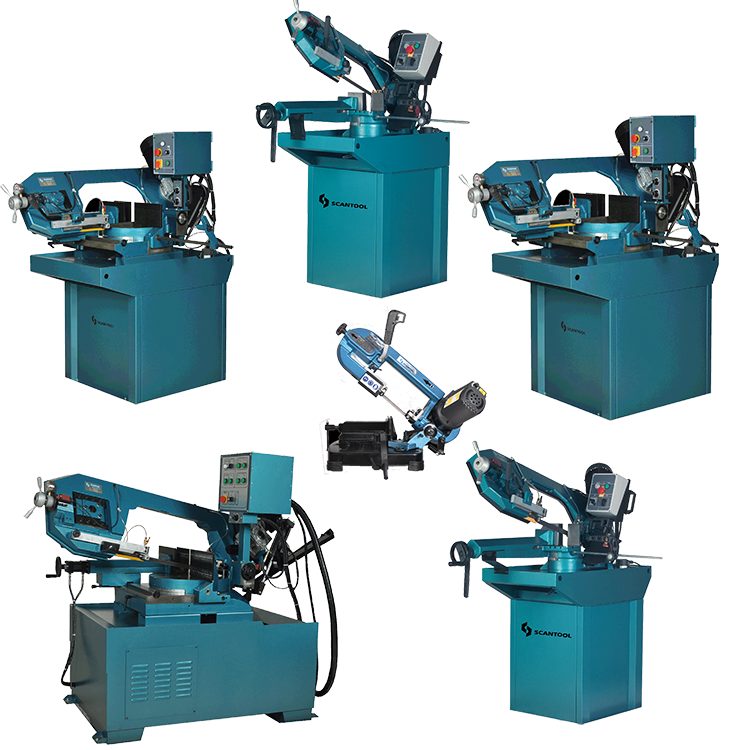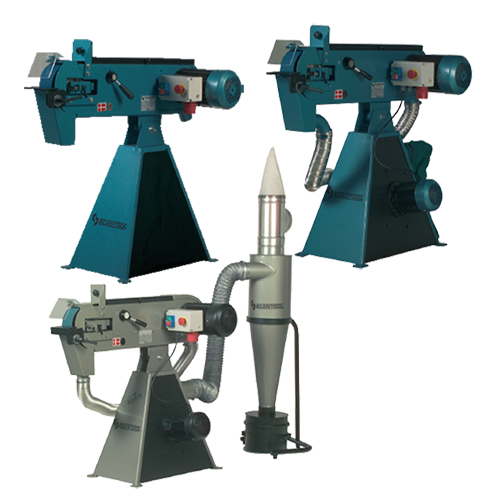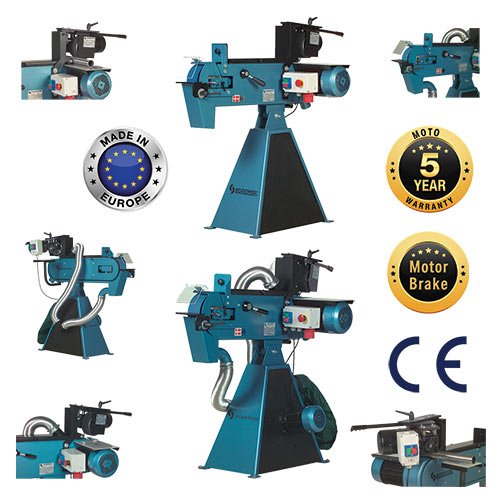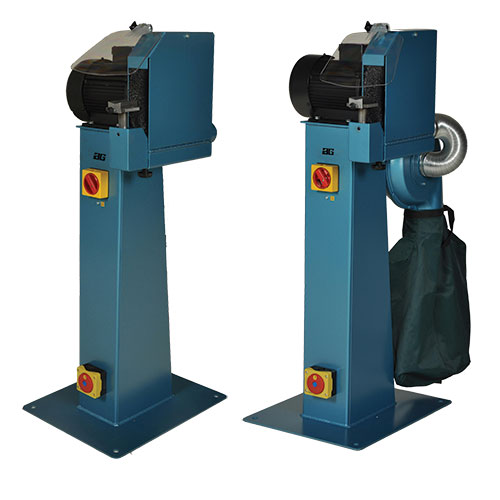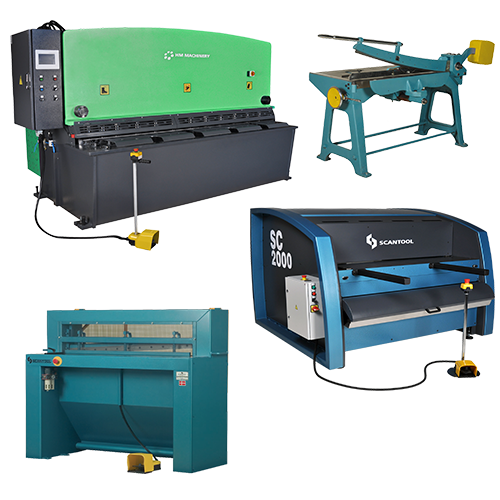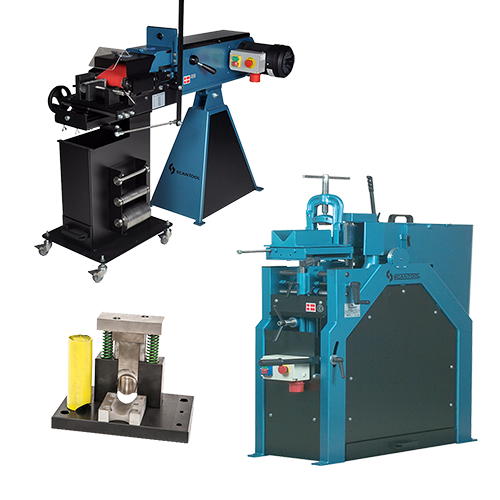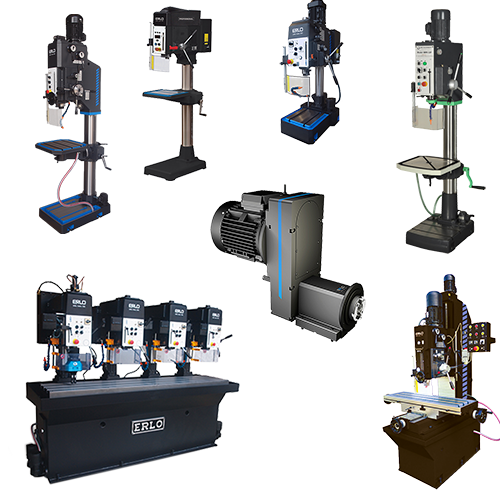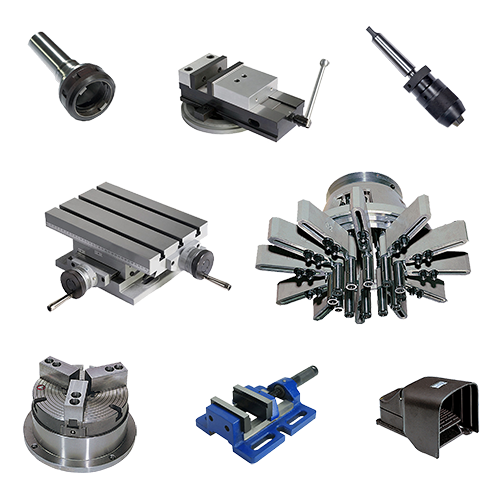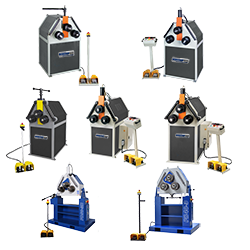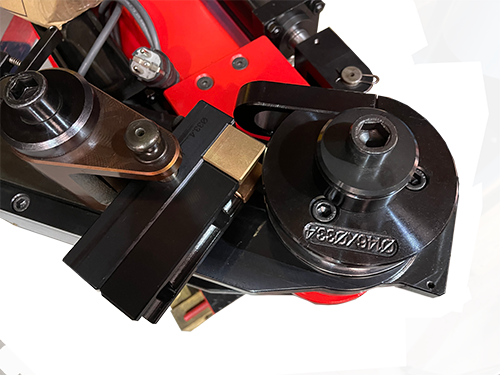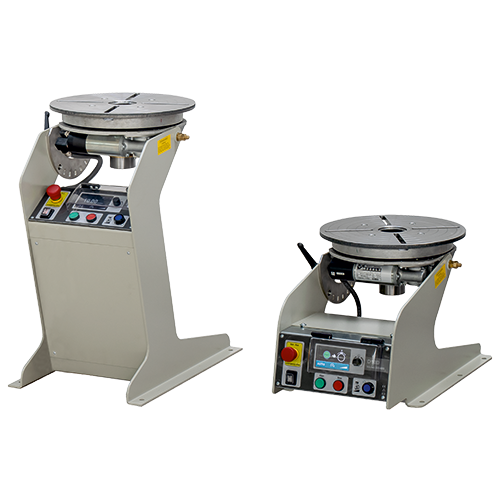In the world of metal fabrication applications, punches and dies for metalworking are essential tools for precise cutting, forming, and shaping materials. Whether you’re working with aluminum, stainless steel, or other metals, maintaining your machines and tooling dies is crucial for achieving high-quality results and extending equipment lifespan. At The Workshop Press Company, we provide a wide range of presses, including our robust C-Frame presses for metal fabrication and horizontal press brakes, designed to excel in demanding fabrication environments.
Common Machines for Steel Bending and Punching
Some of the most popular machines used in fabrication environments for steel bending and punching are the PP-16, PPC-28, and Horizontal Press Brakes.
These machines are renowned for their reliability and performance in handling various metalworking tasks.
- PP-16 Punching Machine: Profi Punch 16 Ton
- PPC-28 C-Frame Press: PPC-28 C-Frame
- Horizontal Press Brakes: Horizontal Press Brakes
Understanding Punches and Dies
Punches and dies for metalworking are paired tools used in press machines to cut or form material. The punch, typically made of hardened steel, forces the material into the die, which has a corresponding shape to achieve the desired cut or form.
Punches and Dies Overview
- Punch: The male part that pushes through the material.
- Die: The female part that receives the punch and shapes the material.
- Clearance: The gap between the punch and the die, critical for the quality of the cut.
Different Geometries of Punches and Dies
Punches and dies come in various shapes and sizes, each suited for different applications. The choice of geometry impacts the quality of the cut, the ease of punching, and the longevity of the tooling. Here are some common geometries and the industries that typically use them:
- Round Punches and Dies:
- Applications: Used for creating round holes, often in sheet metal.
- Industries: Automotive (for creating holes in body panels), aerospace (for precision components), and electronics (for housing and chassis).
- Advantages: Simple to manufacture and maintain, provides even distribution of force.
- Square Punches and Dies:
- Applications: Used for creating square holes or cutouts.
- Industries: Construction (for structural components), electrical (for switchgear and panels), and furniture manufacturing (for assembly components).
- Advantages: Suitable for specific design requirements, often used in structural applications.
- Rectangular Punches and Dies:
- Applications: Ideal for creating rectangular cutouts, slots, or holes.
- Industries: Signage (for mounting slots), manufacturing (for component housings), and HVAC (for ductwork and vents).
- Advantages: Versatile for various applications, especially in structural and decorative metalwork.
- Slotted Punches and Dies:
- Applications: Used for making elongated holes or slots.
- Industries: Automotive (for adjustable brackets), construction (for adjustable fittings), and electronics (for cable management).
- Advantages: Useful for adjustable connections, allows for movement or alignment adjustments.
- Custom Geometries:
- Applications: Tailored to specific design needs, such as complex shapes for decorative purposes or specific industrial applications.
- Industries: Aerospace (for custom components), medical (for specialized equipment), and custom fabrication (for bespoke projects).
- Advantages: Precision fit for unique requirements, though often more costly to produce.
Importance of Proper Clearance
The clearance between the punch and die is vital for clean cuts and the longevity of both the tooling and the press machine. Incorrect clearance can lead to poor-quality cuts, excessive wear on the tools, and even damage to the press.
Typical Clearance Recommendations:
- Aluminum: 5-10% of the material thickness.
- Stainless Steel: 10-20% of the material thickness.
Minimum Punch Size Rule
In metal fabrication applications, following the minimum punch size rule is essential to prevent damage to the punch and die while ensuring clean, precise cuts. This guideline states that the minimum punch diameter should equal the material thickness. For instance, when punching a hole in a 10 mm thick aluminum sheet, the punch diameter should also be 10 mm. Adhering to this rule minimises stress on the punch, maintains the structural integrity of the material, and enhances performance in tools such as C-Frame presses for metal fabrication.
Configuration and Setup
The configuration and setup of punches and dies are critical for achieving high-quality results. Proper setup ensures accurate alignment, optimal clearance, and efficient operation.
- Die and Punch Alignment:
- Ensure the punch and die are perfectly aligned to avoid uneven wear and poor-quality cuts.
- Clearance Adjustment:
- Set the correct clearance based on the material being punched.
- Adjust clearance as necessary for different materials and thicknesses.
- Securing the Tools:
- Punch: Ensure the punch is securely set in the piston holder. A loose punch can lead to misalignment and uneven cuts.
- Die: Firmly secure the die in its holder. The die holder should also be securely attached to the press machine bolster table to prevent any movement during operation.
- Use appropriate fasteners and check tightness regularly to maintain the stability of both punch and die.
Conclusion
Understanding and maintaining your punches and dies for metalworking, along with your press machines, is vital for achieving precise and high-quality results in metal fabrication applications. Proper maintenance and correct configuration not only extend the life of your tooling and equipment but also reduce downtime and enhance overall productivity.
At The Workshop Press Company, we offer more than just high-quality machines; we provide the expertise to help you optimise your processes. Our C-Frame presses for metal fabrication, including the PP-16 and PPC-28, as well as our horizontal press brakes, are built to meet the rigorous demands of any fabrication environment.
Explore our range of presses and learn more about how we can support your metal fabrication needs:
- PP-16 Punching Machine: Profi Punch 16 Ton
- PPC-28 C-Frame Press: PPC-28 C-Frame
- Horizontal Press Brakes: Horizontal Press Brakes
Invest in quality and precision with The Workshop Press Company, your partner in metalworking excellence. Contact us today to learn more about our products and how we can assist you in achieving your fabrication goals. Visit our website at www.workshoppress.co.uk or call us at 0800 999 1090. Let us help you take your metalworking projects to the next level!


